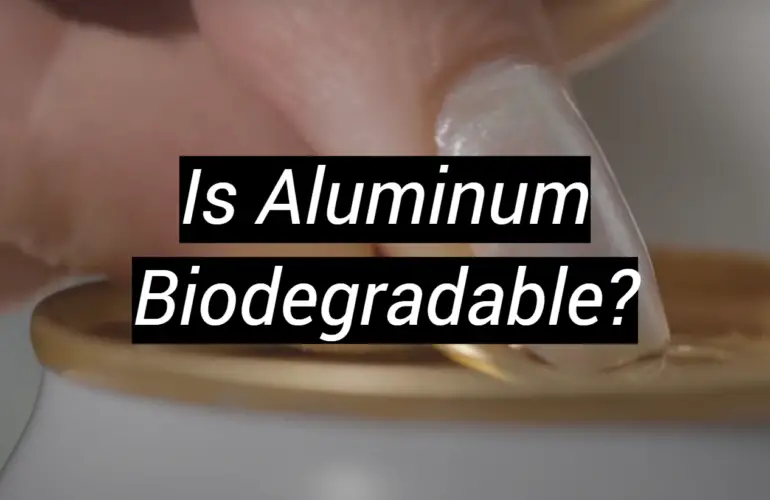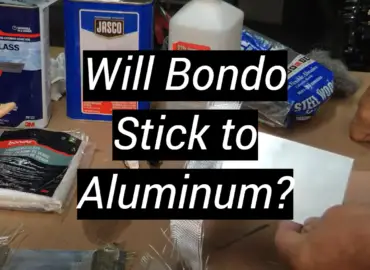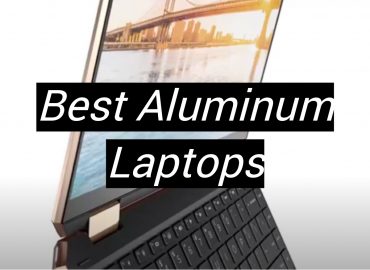It is an age-old question: Is aluminum biodegradable? We often take for granted how much of this durable material we use in everyday objects from beverage cans to kitchen foil. Just how much of it ends up in the environment and how long does it take for it to decompose? This seemingly simple query has complex implications and considerations when examining its effects on our ecosystem. In this blog post, we will break down the basics about aluminum’s biodegradation process to give you a better understanding of if and what kind of impact it has on our planet.
What is Biodegradable?
Biodegradable materials are substances that can be naturally broken down into simpler molecules and absorbed back into the environment.
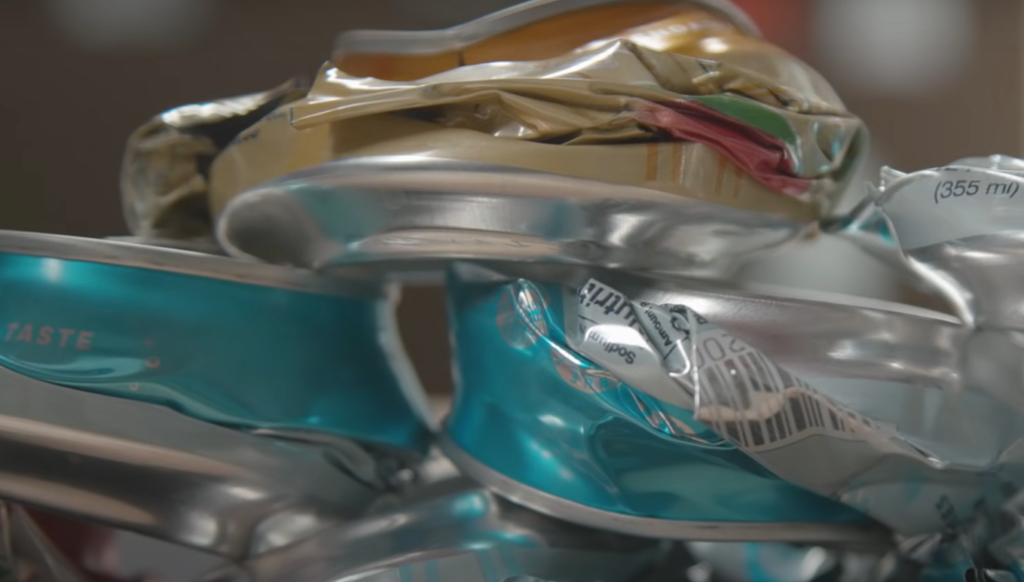
These materials include plant matter, food scraps, paper products, wool and leather. Many of these materials decompose relatively quickly due to their chemical makeup or because they contain living organisms like bacteria and fungi that facilitate the breakdown process.
Is Aluminum Foil Biodegradable?
Although aluminum foil cannot decompose naturally, it can be recycled. Aluminum foil is made of aluminum, a material that doesn’t biodegrade in nature. As a result, aluminum foil will remain intact even after being exposed to elements such as air, moisture and UV rays. While it cannot be broken down organically like other materials, recycling aluminum foil helps keep it out of landfills and reduces the need to create more of it.
Recycling can cut down on energy usage and greenhouse gas emissions associated with manufacturing new products from raw materials. Additionally, some companies offer services that convert used aluminum into new products, making the process even more efficient.
In general, it is not recommended to put aluminum foil in compost piles or soil due to concerns over its potential for leaching chemicals into the environment. Therefore, if you are looking to reduce your ecological footprint when disposing of aluminum foil, recycling is always the most sustainable option. By taking the time to recycle your existing aluminum items and buying recycled goods whenever possible, you can help minimize environmental damage associated with aluminum use. [1]
Is Aluminum Foil Environmentally Friendly?
Aluminum foil is a popular and convenient product used in many households around the world. It’s durable, resistant to corrosion, easy to shape, and waterproof – making it an ideal material for food packaging. However, while aluminum foil offers many benefits when it comes to storing food items, some people are concerned about its environmental impact.
This is one of the reasons why aluminum foil is not considered environmentally friendly as it takes hundreds of years for nature (microorganisms) to break down the material into harmless elements that can be recycled or reused in other ways.However, aluminum foil can still be recycled – and in fact, recycling rates for aluminum have risen greatly since the mid-1990s. Recycling aluminum uses less energy than creating new products from raw materials, making it a more eco-friendly choice. In addition to this, some companies have started to produce biodegradable aluminum foil that is designed to break down over time.
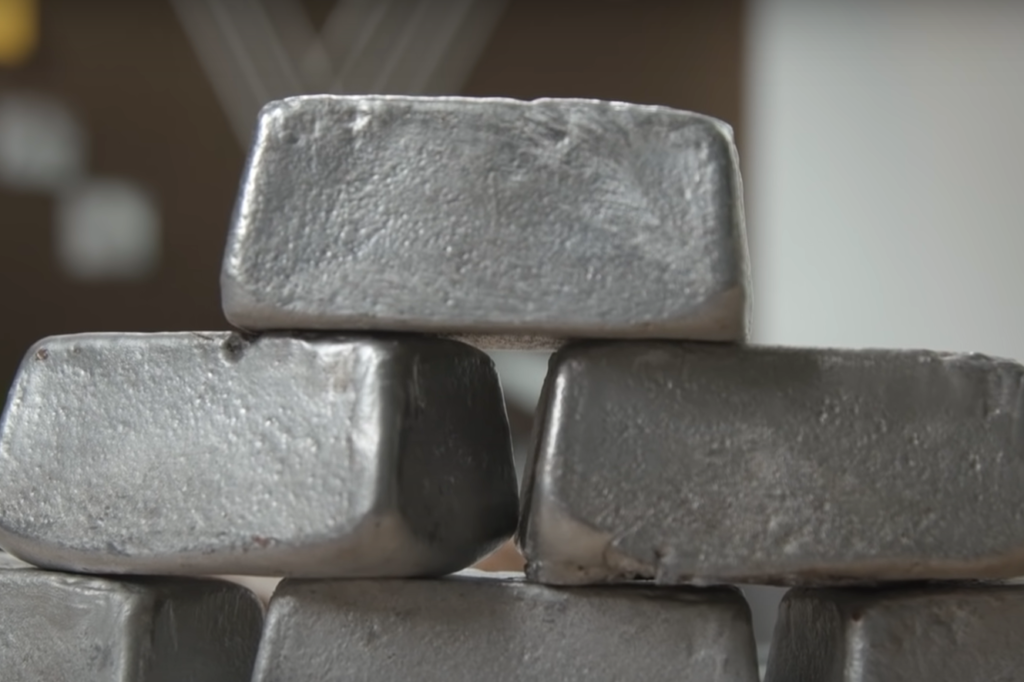
While not all brands of aluminum foil are biodegradable, those that are can help reduce the amount of waste generated by households and encourage people to recycle instead of throwing away their old packaging. So while aluminum foil may not be the most environmentally friendly material on its own right now, it can still play an important role in helping us minimize our carbon footprint.
Ultimately, aluminum foil can be an effective tool for preserving food and preventing spoilage – as long as it is responsibly recycled or disposed of in a way that does not harm the environment. With this in mind, responsible use of aluminum foil can help ensure that we are doing our part to keep our planet clean and green.
How Long Does It Take Aluminum Foil to Decompose?
Aluminum foil is a common household item, but it’s not biodegradable. Aluminum foil does not break down and decompose in the environment, so it can remain intact for many years before eventually breaking apart into smaller pieces. Depending on its environment and exposure to sunlight, aluminum foil can take up to 200 years before it fully decomposes. This makes aluminum foil difficult to recycle, as even after being broken down into small pieces, it still requires additional processing to be reused.
Furthermore, when exposed to natural elements such as water or soil, aluminum foil will corrode over time due to its reactivity with oxygen. This corrosion process results in the formation of rust which further contributes towards the breakdown of aluminum particles within the environment.
Overall, aluminum foil may not be biodegradable but it is still possible to recycle and reuse the material. It’s important to dispose of aluminum foil responsibly by either recycling or repurposing the material in other ways. Reducing our use of single-use aluminum foil can also help reduce its environmental impact. By taking these steps, we can ensure that aluminum foil remains out of our landfills and oceans for years to come. [2]
Can You Recycle Aluminum Foil?
Yes, you can recycle aluminum foil. Aluminum is 100% recyclable and can be collected, melted down, and re-used many times without any change in quality.
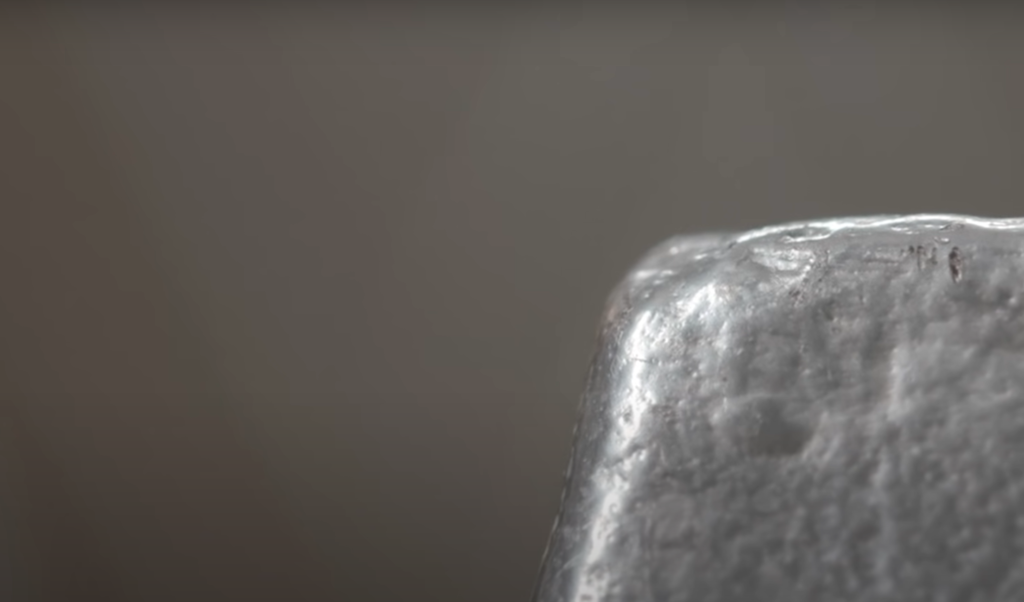
Aluminum foil can be recycled just like other forms of aluminum, such as cans and containers. It should be rinsed clean before being placed in a recycling bin to avoid contamination from food residue. Recycling aluminum saves energy and reduces greenhouse gas emissions while conserving natural resources like bauxite ore. By using recycled aluminum instead of mining new materials, we help reduce global waste production and preserve the environment. So if you have some foil that needs to be disposed of, make sure you rinse it off before throwing it into the recycling bin for collection!
What If You Can’t Recycle?
If you’re unable to recycle aluminum, there is still a way to dispose of it in an environmentally responsible manner. Aluminum can be disposed of safely and sustainably through energy recovery or thermal treatment. Energy recovery involves burning the aluminum at high temperatures in order to generate electricity, while thermal treatment involves melting the material down and using it as raw material for new products. Both methods are effective ways to reduce waste and provide an ecological benefit.
The other option is biodegradation, which is when a material breaks down naturally due to bacteria or other microorganisms. Although aluminum does not naturally degrade on its own, some studies have shown that certain types of fungi can break it down over time in a controlled environment. This could potentially be an effective way to manage aluminum waste, although more research is needed in order to determine if this method can be used on a large scale.
Overall, recycling is still the best option for minimizing waste and making sure that aluminum is disposed of responsibly. If you’re unable to recycle, then energy recovery or thermal treatment are viable alternatives that can reduce the environmental impact of aluminum disposal. Additionally, biodegradation could potentially offer another solution in the future. As we continue to learn more about sustainable disposal methods, it’s important to remember that taking care of our planet begins with reducing production and consumption. By doing so, we can all make a positive contribution towards preserving our environment for generations to come. [3]
Why Should We Recycle Aluminum Foil?
Aluminum is 100% recyclable and can be recycled infinitely with no degradation in quality. This means that aluminum foil, like other forms of aluminum, can also be recycled and reused over and over again. Not only does recycling aluminum help reduce the amount of waste we generate, it also conserves resources like energy and water. In addition to being more eco-friendly than throwing away used aluminum foil, recycling will save you money in the long run as well. By recycling your aluminum foil instead of buying new products, you are making a commitment to be more sustainable while saving yourself some cash.
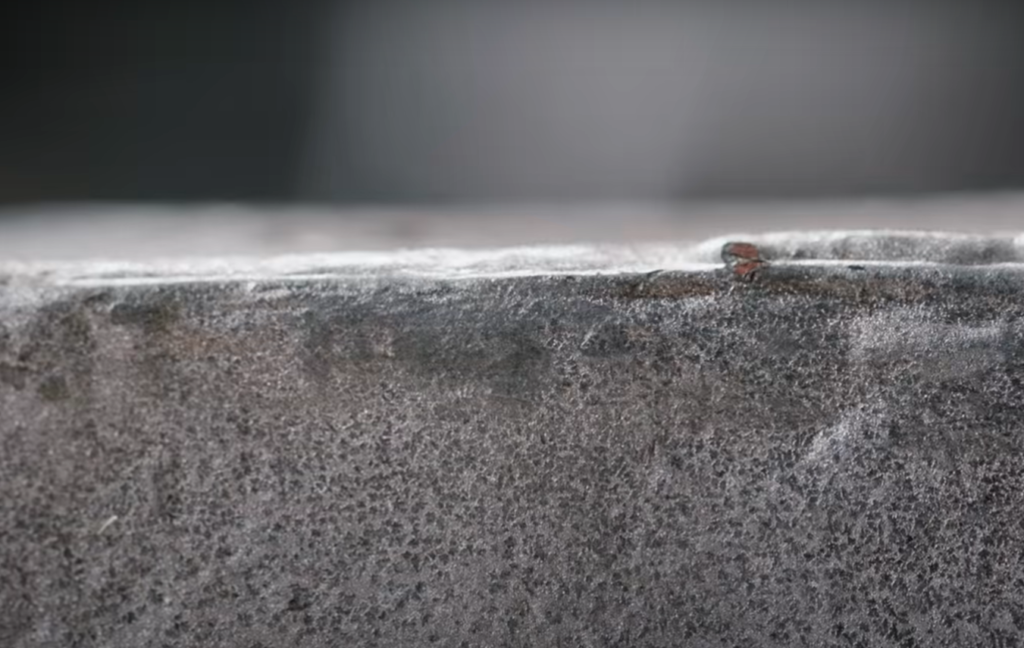
Recycling aluminum foil also helps create jobs within the recycling industry which contributes to a healthier economy. Furthermore, it takes 95 percent less energy to recycle aluminum than it does to create new products from raw materials. This means that when you recycle your aluminum foil, you are helping conserve energy and reduce emissions associated with the production of new aluminum products.
Not only is it more sustainable and cost-effective, but it also helps create jobs and conserve resources like energy and water. So the next time you have some extra aluminum foil lying around, remember to recycle instead of throwing it away!Tips on Recycling Aluminum
Recycling aluminum is a great way to reduce your impact on the environment. Aluminum is 100% recyclable and can be recycled endlessly without losing its properties. Here are some tips for recycling aluminum:
- Sort your waste – Before you recycle, sort out all items made from aluminum and other types of metal. This will help ensure that the right materials end up in the right place for recycling.
- Rinse cans before disposing of them – Rinsing out any food or liquid residue from cans prior to disposal will make sure they don’t contaminate other items during recycling.
- Choose reusable containers over disposable ones – The best way to reduce your environmental impact is to not use any disposable containers in the first place. Reusable containers can be used time and time again reducing your need to recycle.
- Consider donating old aluminum items – If you have any unwanted aluminum items, such as pots, pans, baking trays or even kitchen utensils consider donating them to a local charity shop instead of throwing them away.
By keeping these tips in mind when disposing of aluminum products, you can make sure that they are recycled properly and don’t end up in landfill sites where they could take centuries to biodegrade. [4]
Pros and Cons of Aluminum
Aluminum is a popular material for many different applications, from packaging to construction. It is strong and lightweight, making it the perfect choice for many purposes. But does aluminum have an environmental impact? Is aluminum biodegradable?
Pros of Aluminum:
- Aluminum is highly durable and resistant to corrosion, which makes it very long-lasting. This makes it great for items that need to take a lot of wear and tear or be exposed to the elements.
- Aluminum is also lightweight, yet strong enough to be used in various applications such as vehicles or buildings. This reduces fuel consumption when transporting products made of aluminum due to its low weight-to-strength ratio.
- The production process for aluminum is relatively energy efficient and does not require high levels of heat.
- Aluminum can also be recycled easily and efficiently, allowing it to be reused without losing its strength or quality.
Cons of Aluminum:
- One downside to aluminum is that it is a non-renewable resource, meaning that the supply will eventually run out over time.
- Another issue with aluminum is that it can leach toxins into the environment when it weathers or corrodes. For this reason, aluminum should never be used in food packaging as the chemicals could make their way into what’s inside the package.
- Despite being recyclable, aluminum still has a large environmental footprint due to the energy needed to melt down and reform it into new products.
- Finally, aluminum is not biodegradable, meaning that it will stay in the environment as waste indefinitely. This can cause problems with landfill space and other environmental issues.
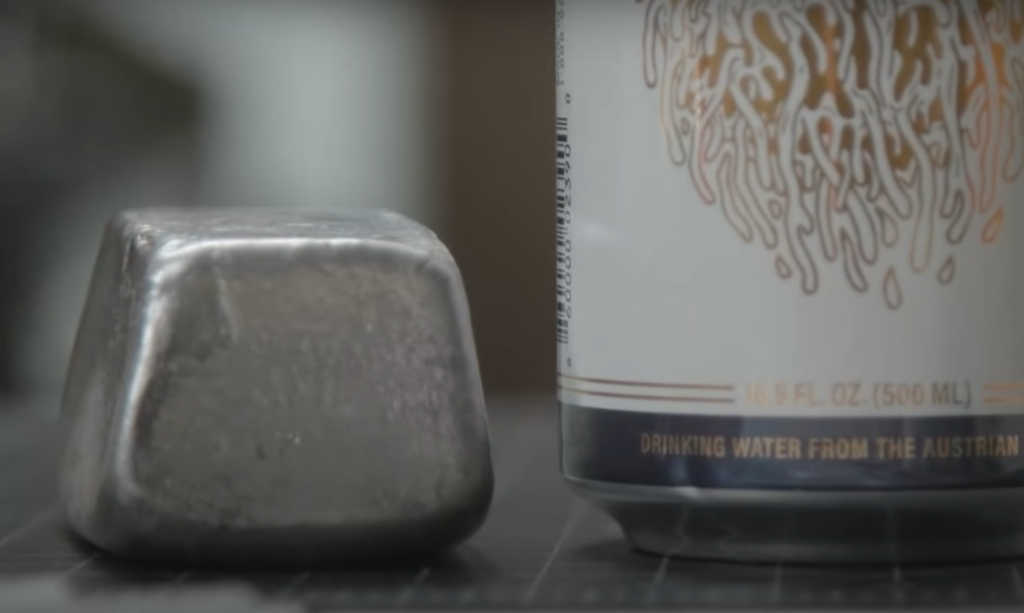
Overall, aluminum has both pros and cons when it comes to its environmental impact. While it is strong and lightweight enough for many applications, its intensive production processes and inability to break down over time make it an unsustainable resource. In order to reduce its environmental footprint, recycling should be encouraged whenever possible so that existing supplies are reused instead of being wasted or thrown away. Anytime aluminum is used on a large scale, the potential impacts should also be taken into account when making such decisions. [5]
FAQ
Is aluminum bad for the environment?
No, aluminum is not bad for the environment. Aluminum is a natural element that can be recycled and reused nearly infinitely without any significant loss of quality. In fact, recycling aluminum requires only 5% of the energy used to create new aluminum from its raw ore form, so it is much more energy-efficient than producing new aluminum products. Additionally, aluminum production does not release toxic gasses or other pollutants into the atmosphere.
Is aluminum biodegradable?
No, aluminum is not biodegradable. The main component of aluminum metal (aluminum oxide) is extremely resistant to breakdown by bacteria and fungi due to its strong molecular bond structure. This means that aluminum will stay in the environment virtually forever unless it is recycled or disposed of properly. Although aluminum is not biodegradable, it is recyclable and can be reused in new products instead of being sent to landfill. This helps reduce the amount of waste that needs to be managed and minimizes the impact on the environment. Additionally, many companies are now taking measures to ensure that their aluminum products are as eco-friendly as possible by using recycled materials and minimizing energy use during production.
Can aluminum cans be recycled?
Yes, aluminum cans can be recycled. Aluminum cans are one of the most commonly recycled materials due to their lightweight and strong material structure.
Recycling just one aluminum can saves enough energy to power a television for three hours! By recycling these cans, people can help reduce the amount of waste that goes into landfills and conserve natural resources. Additionally, aluminum can be recycled indefinitely without any significant loss in quality.
Does aluminum foil biodegrade?
The answer is yes, but it takes a very long time to degrade. Aluminum foil can take up to 200 years to fully biodegrade in the environment. Aluminum foil is made from aluminum, which does have its own natural biodegradability. However, when exposed to air and water, the foil will not break down quickly due to its waterproof properties. This means that the aluminum must be in contact with microbes for a significant amount of time before it can begin to break down naturally. In addition, aluminum foil is often covered in wax or other materials which act as a barrier and make it even more difficult for microbial activity to occur on the surface of the metal and speed up its decomposition process. As a result, it is important to be mindful of how we use and dispose of aluminum foil in order to limit its environmental impact.
What is the most eco-friendly metal?
The most eco-friendly metal for producing goods is stainless steel due to its long lifespan and resistance to corrosion. This makes it the ideal material for durable items such as cookware, furniture, construction materials, and even medical equipment. Stainless steel can also be recycled an unlimited number of times without losing its quality or properties. Additionally, stainless steel is non-toxic and does not require any additional chemicals during production which helps reduce its environmental impact compared to other metals. As a result, investing in stainless steel products is an excellent way to make sure that your purchases are helping to protect the environment. In conclusion, aluminum foil can biodegrade over time but it takes much longer than other organic materials.
Is aluminum worse than plastic?
Aluminum is a more sustainable material than plastic. It is 100% recyclable and can be recycled indefinitely without any loss of quality. In addition, it takes 95% less energy to recycle aluminum than it does to make new aluminum from raw materials. That means that recycling aluminum significantly reduces the amount of energy used in production, which reduces greenhouse gas emissions and helps protect the environment. However, unlike some other materials like glass or paper, aluminum is not biodegradable; once discarded, it will remain in the environment until recycled or collected for disposal. That means that if you don’t take steps to properly dispose of your aluminum items they can end up polluting the environment or clogging up landfills.
Useful Video:IS ALUMINIUM SUSTAINABLE? // what’s better cans or bottles?
Conclusion
In conclusion, aluminum is not biodegradable. While it is able to be recycled and reused in other products, it will never decompose into natural elements of Earth like organic material does. This means that the production of aluminum requires a great deal of energy and resources, making it an unsustainable resource if not recycled. It’s important to remember that reusing and recycling materials whenever possible helps to reduce our collective consumption as well as protect our environment for future generations. Taking steps towards more sustainable practices can help us all become better stewards of the planet we call home.
As responsible consumers, we should all strive to use less aluminum when possible and recycle any aluminum products we have already used up. Doing so will ensure that we are doing our part to reduce our environmental footprint and create a more sustainable future for everyone.
References:
- https://www.cosmeticsdesign.com/Article/2022/01/19/Pros-and-cons-of-aluminum-packaging
- https://www.conserve-energy-future.com/is-aluminum-foil-recyclable.php
- https://www.thinkingsustainably.com/is-aluminum-foil-biodegradable/
- https://www.ablison.com/how-to-recycle-aluminum-foil-and-is-it-biodegradable/
- https://thinkofthepandas.com/2022/07/25/is-aluminum-foil-biodegradable-can-it-be-composted/

